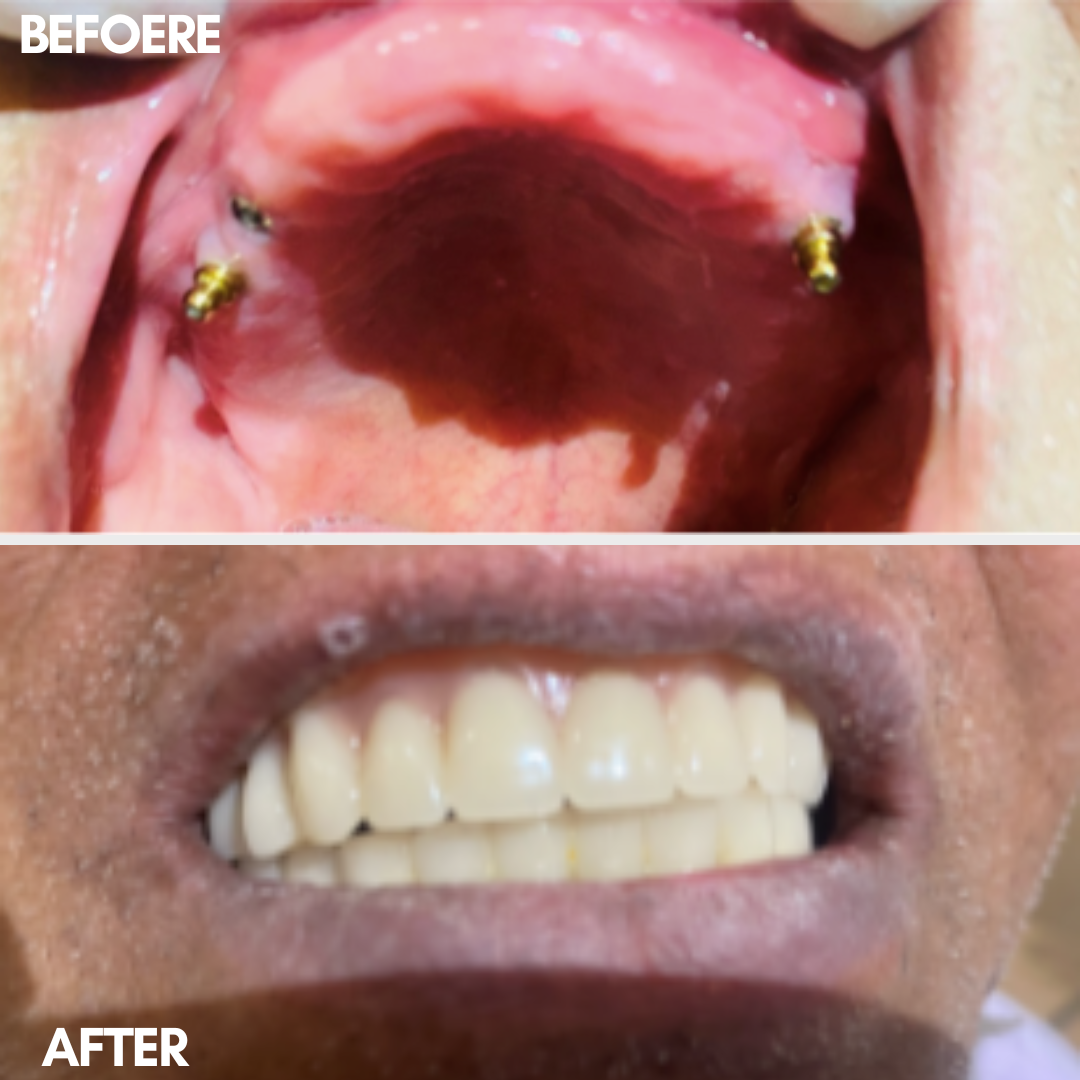Case Study
Improving Comfort and Retention with Implant Supported Overdentures
Four years ago, a patient came to us with a significant dental issue. They had completely lost their upper teeth and had multiple decayed and missing lower teeth. On top of that, they were also managing diabetes and had been taking medication for it for over a decade. After careful evaluation, we devised a treatment plan that included a Complete Denture for the upper jaw and a Tooth Supported Fixed Dental Bridge for the lower jaw.
Treatment Plan
During the treatment process, we performed multiple Root Canal Treatments in minimal sittings to address any underlying issues. Following this, we placed a Tooth Supported, long span, Fixed Dental Bridge for the lower jaw and a Complete Denture for the upper jaw. We also advised the patient to replace the upper denture every 3-4 years to ensure optimal functionality and aesthetics.
Four years later, the patient returned to our clinic seeking a replacement for their denture. Due to continuous bone resorption and their additional systemic diabetic condition, we understood the need for a more retentive option that would provide better comfort and stability. After a thorough assessment, we decided to plan for an Implant Supported Overdenture.
An Implant Supported Overdenture is a removable dental prosthesis that is secured in place by dental implants. The implants act as anchors, enhancing the stability and retention of the denture. This innovative solution offers numerous benefits for patients, particularly those with compromised oral health.
By opting for an Implant Supported Overdenture, our patient can expect improved comfort and stability when compared to a traditional denture. The implants provide a secure foundation, minimizing the risk of slippage or discomfort while eating or speaking. This enhanced stability can significantly improve the patient’s confidence and quality of life.
Furthermore, the use of dental implants helps stimulate the jawbone, preventing further bone resorption. This is especially important for individuals with diabetes, as they may be more prone to bone loss. By preserving the jawbone, we can maintain the overall facial structure and prevent any potential complications that may arise from bone loss.
It is worth noting that while the lower Fixed Dental Rehabilitation was still in excellent condition and did not require any correction or replacements, the decision to proceed with an Implant Supported Overdenture for the upper jaw was based on the patient’s specific needs and circumstances.
Conclusion
At our clinic, we understand the importance of personalized treatment plans that address each patient’s unique situation. We take into account factors such as oral health, medical conditions, and individual preferences to provide the most suitable solutions. Our team of experienced professionals is dedicated to delivering high-quality dental care that improves our patients’ overall well-being.
If you are experiencing similar dental issues or have concerns about the stability and comfort of your dentures, we encourage you to schedule a consultation with our dental experts. Together, we can explore the options available and create a treatment plan that meets your needs and exceeds your expectations.

